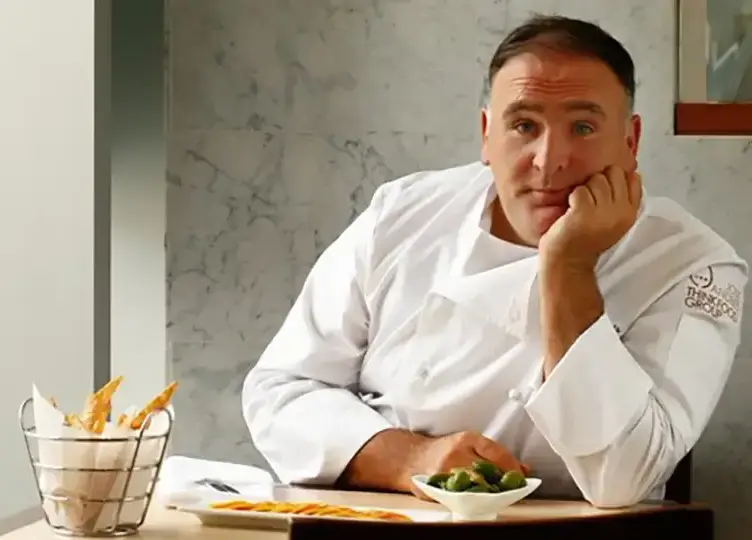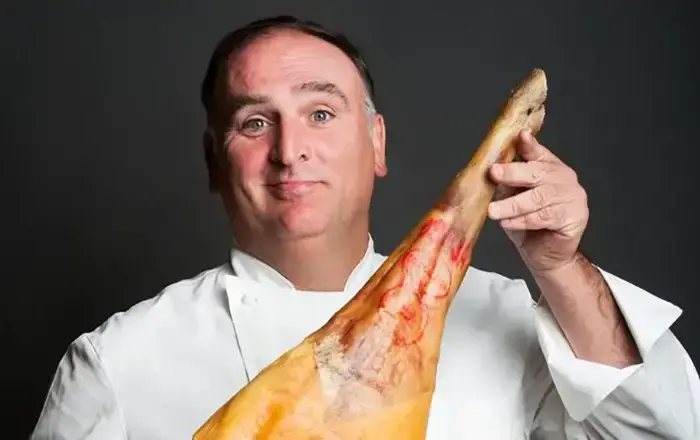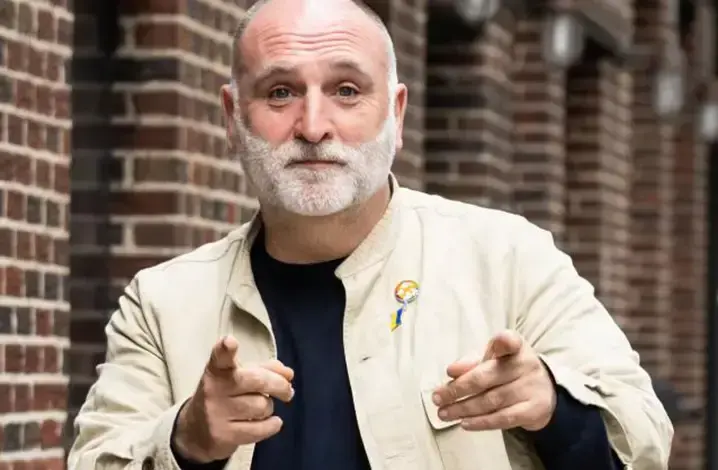In California, “food” has always meant more than just what’s on your plate.
It’s a way of life, a philosophy, a reflection of care — for the body, the planet, and the future.
But one man took it further.
He turned food into an act of courage and compassion.
His name is José Andrés, and he’s the chef who proved that a kitchen can be more powerful than any political podium.
When Cooking Becomes Rescue
When homes collapse and wildfires roar, when a city is buried in ash — what do people need first?
Warmth. And a hot meal.
Not promises, not paperwork — just food.
José Andrés understood that better than anyone.
In 2017, after Hurricane Maria devastated Puerto Rico, leaving millions without power or clean water, Andrés and a group of volunteer chefs flew in.
No funding. No formal mission. Just pans, knives, and heart.
In a few weeks, his nonprofit, World Central Kitchen (WCK), cooked over three million meals for people who had lost everything.
Those meals were more than nourishment — they were hope served in a bowl.

The Recipe for Compassion
World Central Kitchen isn’t a traditional charity.
It’s a new model for humanitarian aid — fast, local, and deeply human.
When disaster strikes, bureaucracy usually slows everything down.
Permits, budgets, supply chains… while people wait hungry.
Andrés works differently. His motto is simple:
“Feed first. Ask questions later.”
WCK chefs set up kitchens anywhere — in stadiums, on ships, in school cafeterias, even in the middle of the street.
Their goal is to be the first ones to feed, not the last ones to respond.
The California Chapter
California has become one of the key points on WCK’s map.
When the wildfires tore through Sonoma, Napa, and Santa Clara, Andrés’ team was there — cooking for firefighters, evacuees, and families who had lost their homes.
During the pandemic, when restaurants across the state shut down and thousands lost jobs, Andrés turned his own restaurants — including those in Los Angeles — into community kitchens.
He said:
“If you can cook, you can help. Chefs don’t wait for orders — they light the stove.”
A Humanitarian With Michelin Stars
Before becoming the world’s most famous “chef of compassion,” José Andrés was already a legend in fine dining.
Born in Spain, he moved to the U.S. in the late 1980s and became one of Washington, D.C.’s most acclaimed chefs.
His restaurants — from Jaleo to é by José Andrés — earned Michelin stars and critical acclaim.
But as his fame grew, so did his sense of emptiness.
“You can feed fifty guests in an elegant dining room,” he once said, “but the real mission begins when you feed thousands who have nothing.”
That’s when he realized cooking could be a form of crisis response — and compassion could be served hot.
Turning Cooking Into Survival Strategy
WCK runs like a high-efficiency rescue team.
Each mission is built in hours, not days.
They buy ingredients from local farmers, hire local cooks, and adapt every meal to the region’s culture — whether it’s the Caribbean, Hawaii, or Ukraine.
This approach not only feeds people but also rebuilds local economies.
After the wildfire disaster in Maui, for example, WCK worked with Hawaiian farmers and restaurants to source food locally — keeping money within the community and fueling recovery from within.
The Technology of Doing Good
José Andrés is not just about heart — he’s also about innovation.
WCK uses satellite data to map disaster zones, mobile apps to organize volunteers, and even works with tech companies like Tesla to power kitchens when there’s no electricity.
For him, “food tech” isn’t about fancy gadgets.
It’s about how technology can serve humanity — how data and energy can help save lives.
The People Behind the Pans
Today, World Central Kitchen includes more than 45,000 volunteers worldwide.
They’re chefs, students, farmers — ordinary people who couldn’t stand by and do nothing.
They don’t look for glory.
They just show up, light a stove, and start cooking.
Because for them, each pot of soup is a story — a small act of rebuilding hope.

The Chef as a Global Citizen
José Andrés often says he doesn’t believe in borders.
“Hunger doesn’t have a passport. Why should help need one?”
That philosophy has made him one of the most admired humanitarians of our time.
He’s met presidents, advised world leaders, and received countless awards — but he’s just as likely to sleep in a tent next to his team.
Because his greatest honor is feeding someone who’s hungry.
Why Californians Listen to Him
In California, where climate and crisis are part of life, Andrés’ message hits close to home.
Here, wildfires, droughts, and earthquakes aren’t distant problems — they’re realities we live with.
That’s why Californians connect with him so deeply.
His story isn’t just about generosity — it’s about resilience.
He shows that in a world where disasters are inevitable, the human response still defines who we are.
Cooking as Civic Courage
José Andrés isn’t a politician, but his work is political in the purest sense: it changes lives through action.
He shows that kindness can be organized, that compassion can be strategic, and that doing good can be done professionally.
When the world talks about “global challenges” — climate change, migration, crisis — Andrés answers them not with speeches but with hot meals.
He represents a new America: one that leads with empathy and feeds with purpose.
🕊 The Kitchen We All Have
José Andrés’ story reminds us that everyone has their own “kitchen of kindness.”
Maybe it’s your café that offers free coffee to someone in need.
Maybe it’s your backyard garden that grows vegetables for neighbors.
Or maybe it’s simply the willingness to show up and help when someone is hungry.
Because, as Andrés says:
“The world isn’t saved by superheroes. It’s saved by people with ladles.”






